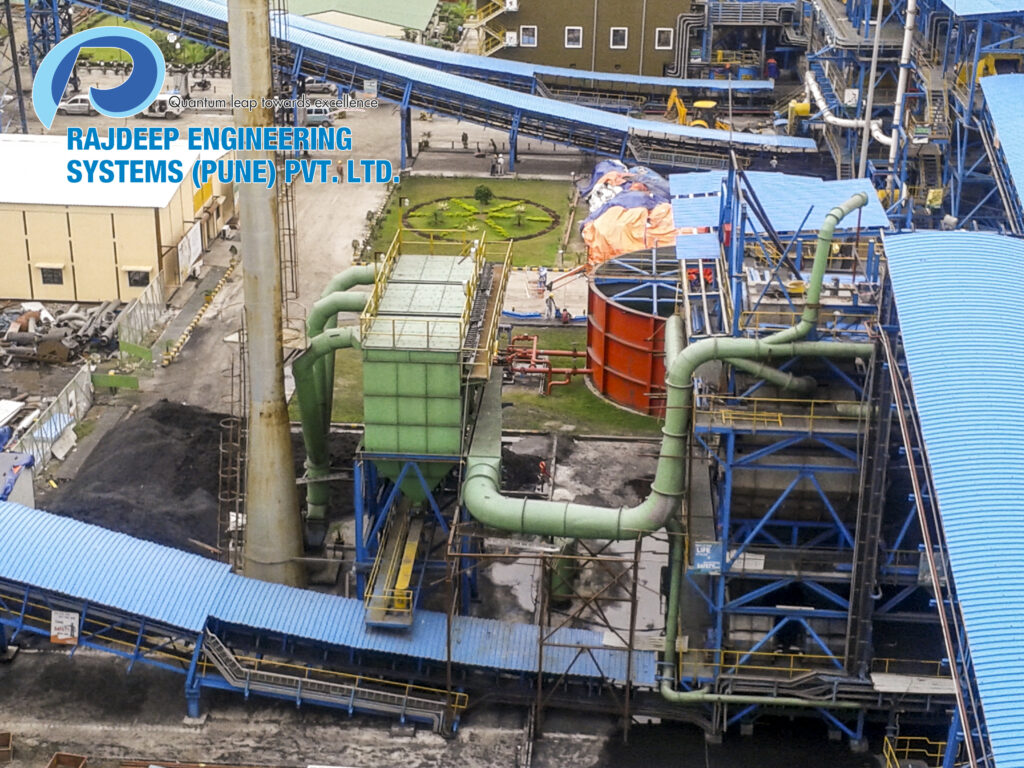
Dust Collection System: Efficient Air Filtration for Clean Workspaces
A dust collection system plays a critical role in maintaining air quality within production facilities, workshops, and industrial complexes by effectively removing particulate contaminants from the air. This system operates by directing air through a series of tightly sealed filters, where contaminants are captured and retained. Once the air is purified, it can either be expelled outside or recirculated back into the facility, provided it meets the necessary emission standards.
As environmental awareness has heightened, the implementation of dust collection systems has become imperative for industries generating significant amounts of dust particles and ambient gases. Manufacturers of these systems must adhere to stringent government regulations and assure customers of their systems’ efficiency and compliance with standards set by organizations such as the Environmental Protection Agency (EPA), National Fire Protection Association (NFPA), and Mine Safety and Health Administration (MSHA).
Understanding the Functionality of a Dust Collection System
Put simply, a dust collection system is crafted to eliminate particles from the air generated during various operations. While this description may seem straightforward, the actual process involves intricate design and engineering to effectively capture harmful contaminants.
A critical part of a dust control system includes a fan, filters for the dust, a cleaning technique, a capture unit, and piping, and the problem is dust particles. A few dust collectors are there, such as fabric filter baghouses, inertial separators (mechanical cyclones), for example, and cartridge collectors, wet scrubbers, or electrostatic precipitators. Baghouse-type dust collectors enjoy deep prevalence due to their ability to remove dusty particles from the air at a rate of 99%.
The pollutants targeted for removal vary depending on the industry. Dust collector manufacturers tailor equipment to meet the specific environmental demands of each setting, ensuring optimal performance and compliance with regulations.
The Safety Benefits of Dust Collection Systems
Having a dust collection system is important for several reasons. First and foremost, it helps to keep the air clean and free of harmful particles. This is especially important in workplaces where people are exposed to dust on a daily basis. By removing dust from the air, these systems can help prevent respiratory problems and other health issues.
Secondly, a dust collection system can help to prevent fires and explosions. Dust particles are highly flammable, especially in environments where there are sparks or hot surfaces. By removing dust from the air, a dust collection system reduces the risk of dust buildup and potential ignition sources.
Different Varieties of Dust Extraction Systems
Dust collection systems play a pivotal role across various industries, requiring tailored design and engineering to align with specific industry demands. Their primary objective is to control, diminish, and eliminate contaminants, hazardous substances, gas emissions, and dust particles. These systems are meticulously crafted to cleanse and filter air, ensuring its safe release into the surrounding environment or workspace.
Each industry presents a unique array of pollutants and harmful particles, necessitating dust collectors to meet precise extraction requirements for optimal air purification.
With increasingly stringent standards for air quality, manufacturers of dust collection systems have responded to the demand by developing air purification devices that not only meet but exceed government regulations.
- Shaker Dust Extraction Systems
- Cyclone Dust Extraction Systems
- Baghouse Dust Extraction Systems
- Cartridge Dust Extraction Systems
- Wet Scrubber Dust Collection Systems
- Downdraft Table
- Self-Contained, Internal Return Dust Collection Systems
- Ambient Dust Extraction System
- Explosion-Proof Dust Extraction System
Benefits of a Dust Collection System
When evaluating the installation of a dust collection system, several factors merit consideration. While cost-effective options may initially appear appealing from a financial standpoint, the paramount concern should be the quality of air within the workspace and the surrounding area.
- Fire Suppression
- Explosion Proofing
- Odor Reduction
- Respiratory Health
- Personal Safety
- Worker Morale
- Governmental Regulations
